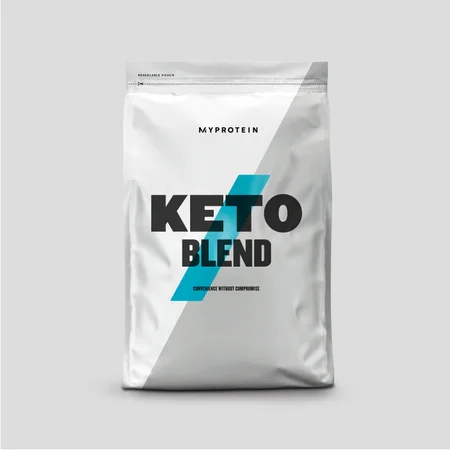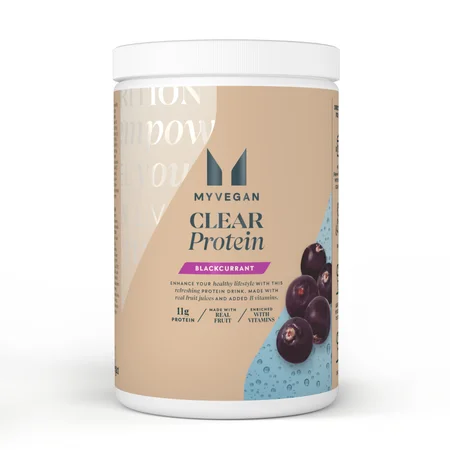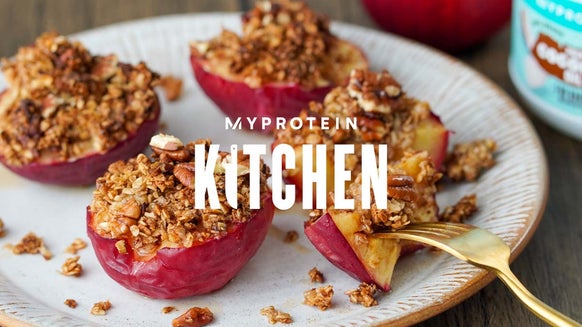Nutritionists Review The Most Popular Diets of 2021 So Far

From the Mayr Method to the Pegan diet, diets continue to be a huge focus for many in 2021 - whether its to lose weight, gain muscle, improve energy levels of reduce their carbon footprint.
But which weight loss trends have been the most popular this year so far? We decided to find out which diets have already been grabbing the dieting spotlight, and asked our in-house nutritionists to share which ones they'd recommend - and which to avoid.
Using Google Trends along with search data, we discovered which diets have piqued Brits' curiosity the most. Here's what we found:
- The Michael Mosley Covid19 diet - 1,600% increase in searches
- The Metabolism reset diet - 1,500% increase in searches
- The Sirt Diet - 700% increase in searches
- The Pegan Diet - 500% increase in searches
- Low histamine diet - 350% increase in searches
- 800 calorie diet plan - 300% increase in searches
- Green juice diet - 300% increase in searches
- The Level 6 diet - 250% increase in searches
- The Mayr Method - 150% increase in searches
- The Carnivore Diet - 70% increase in searches
Michael Mosley 'Covid 19' diet dominates searches
One of the biggest trends so far in 2021 has been the rise of the 'Michael Mosley diet'. A keen advocate of the 5:2 fasting diet, Michael Mosley has become a household name in the world of dieting with his very own 'Fast 800' diet, in which he recommends cutting daily intake to 800 calories for the first couple of weeks, before returning to a normal balanced diet focused on healthy whole, Mediterranean-style foods. Indeed, searches for both 'Michael Mosley diet' and '800 calorie diet plan' show that this way of eating has got Brits intrigued.
Some time into the Covid-19 pandemic, the link between the serious effects of covid-19 and obesity were made very clear. This has given many weight loss doctors and dieting brands a clear gateway to highlight the benefits of weight loss more than ever and further promote their own products.
Michael Mosley has been no exception, commenting on the link between higher body weight and covid-19 effects and encouraging anybody who is overweight to give his Fast 800 a try. This has possibly led to his diet now being dubbed 'the covid-19 diet' by searchers.
Although the Fast 800 does advocate for significant calorie restriction at first, Mosley clarifies that "the overall goal is to embrace a lifestyle and learn the foods and portions that support your health so that – once you achieve your goals – you no longer have to focus on counting your calories or any other macro nutrient."
Metabolism Reset diet: the 2021 approach to weight loss?
The Metabolism Reset diet has been popularised recently by former NFL player Steve Weatherford, who promotes his own version of the diet. However, simply put, the Metabolic Reset diet revolves around the idea that you can train (or 'trick') your metabolism to speed up and therefore burn more calories.
Though the diet varies depending on what plan you follow, it generally involves restricting your calories intake (though limiting whole grains, dairy and simple carbs like fruit) and increasing protein intake. Steve Weatherford's regime, for example, focuses on carb cycling (boosting carbs on some days, limiting them on others) and a supplement routine to follow. The diet lasts for approximately two months and proclaims not just significant weight loss but also improved gut health and bigger muscles, with effects visible after just 30 days.
The diet promises to help alter your metabolism, speeding up the rate at which it burns calories while resting and therefore helping long-term weight loss.
Sirt, Pegan & Low-Histamine diets also on the radar
Sirt, pegan and low-histamine diets are other diet trends piquing the curiosity of Brits in 2021. Although these diets may have been around for a while, their significant increase in searches suggests they are perhaps becoming more mainstream and will continue to attract followers as the year goes on.
The sirt diet originally shot into the spotlight after singer Adele used it to achieve her dramatic weight loss in 2020. It is based on research on sirtuins (SIRTs) - a group of seven proteins found in the body that have been shown to regulate a variety of functions such as metabolism and inflammation. It is thought that by eating the top recommended ‘sirtfoods’ as part of a calorie-restricted diet, the body is encouraged to produce more sirtuins and this helps to turn on your ‘skinny gene’, as well as protect against chronic diseases. Sirtfoods include kale, red wine, strawberries, onions, buckwheat, soy, dark chocolate, extra virgin olive oil and certain nuts and spices, to name just a few.
So far, there is not much evidence to suggest that the sirt diet has a greater effect on weight loss than any other calorie-restricted diet. While the sirt diet does include plenty of healthy, antioxidant-rich foods, doctors and nutritionists recommend to incorporate these foods as part of a regular, balanced diet.
Meanwhile, 'pegan' diets - a blend between paleo and vegan - have also been picking up interest, with plant-based and low-carb diets both on the rise over the last five years, and people looking for a more planet-friendly way of eating.
The pegan diet aims to offer all of the benefits of a lower-carb diet (such as paleo) by focusing largely on whole foods and a higher proportion of fat and protein through beans, nuts and seeds, and little to no grains. However, it does this solely with plants instead of animal-based foods, which makes it perfect for those conscious about the environment and animal welfare.
The low-histamine diet, on the other hand, involves limiting various histamine-rich foods such as fermented foods (including cheese, yoghurt, sauerkraut, soy products and pickles); cured or fermented meats; fermented breads and grains such as sourdough, and beer, wine and champagne. Even some fruits and veg like aubergine, tomatoes and spinach are not permitted. The diet is intended to help those who may have histamine intolerance, which means that foods containing high levels of histamine can lead to allergic reactions.
Unfortunately however, low-histamine diets can be very restrictive and possibly even lead to malnutrition. As histamine intolerance is incredibly difficult to diagnose, participants should not try this diet unless under medical supervision, with close help from their doctor.
Other weight loss trends in 2021
Other weight loss diet trends in the form of the green juice diet, Mayr method and the carnivore diet have also been taking off this year, bringing these previously niche diets into the foreground.
Mayr method: an "unsustainable approach to weight loss"
The Mayr method of dieting was created by Dr. Franz Xaver Mayr and highlights the importance of gut health and mindful eating practices. It was recently popularised by Rebel Wilson, who credited the diet for her rapid weight loss.
Having a healthy gut can be incredibly important for achieving sustained weight loss and overall health, while mindful eating has been shown to be an effective tool for improving a person’s relationship with food and disordered eating behaviours.
But while the Mayr method's founding principles seem to be a step in the right direction, experts agree that’s unfortunately where the 'good' ceases.
According to Jamie Wright, in-house nutritionist for Myprotein: "The diet itself is highly restrictive and makes a number of claims unsubstantiated by scientific evidence. One such claim being the promotion of alkaline foods and restricting acidic foods to promote a more desirable PH level within our body. To summarise, the PH of your food is irrelevant; our body regulates PH very effectively and, if it didn’t, you’d be pretty ill.
He goes on: "The promotion of a 'detoxing' diet, such as that incorporated within the Mayr method, can also be quite harmful. Research has shown that these kinds of diets promote, and may lead to further, disordered health behaviours."
The Mayr method advocates for abstaining from many foods it considers to be problematic such as caffeine, alcohol, sugar, dairy and gluten. Experts say that this 'fear factor' around specific foods can lead to disordered eating and binging in the long-term.
"While certainly moderating your intake of these foods and foodstuffs would be advised, completely abstaining from them is unnecessary and can result in nutritional deficiencies and restriction-induced over-eating or binging," Jamie says.
Perhaps the most unsustainable part of the diet is the recommendation to spend a week at one of the Mayr clinics to get the full experience, which would set dieters back $2200. Needless to say, the diet may not be overly accessible for all at this price tag.
"While you can buy the book and follow the steps in it, do you really want to follow a diet which advocates starving yourself to 'cleanse your gut' before throwing the next round of mumbo jumbo at you about how you need to detox and have only alkaline foods?" Jamie asks.
"Gut health: great. Eating mindfully: potentially useful for some. The Mayr method? A great way of testing your sanity and bank balance.
The carnivore diet continues to rise with 70% increase in searches
Another diet that has seen a surprising increase in Google searches over the last year is the carnivore diet.
Once an unheard-of concept, the carnivore diet is rapidly growing in popularity. It has seen a 70% increase in searches so far in 2021 and a surge of over 5000 new monthly searches in 2019 has made it more popular than the alkaline, Dukan and DASH diets.
The carnivore diet involves cutting out all plant-based foods and consuming only animal-based products, including meat, fish, seafood, eggs, and limited amounts of dairy.
Though anecdotal evidence suggests the diet can be beneficial for weight loss and treating arthritis, depression, anxiety and diabetes, effects of the diet have not yet been analysed by research. Unlike the keto diet, which aims to keep carbs to a minimum, the carnivore diet is a completely zero-carb diet.
It's probably no surprise that, due to its lack of supportive evidence, the diet is not recommended by experts, who warn against the diet for overall health as it eliminates all plant foods that are an important source of many vitamins, minerals and antioxidants. Side effects of the carnivore diet include vitamin deficiencies, lack of fibre and electrolyte imbalances.
"It's like the keto diet but stupid," says Jamie Wright, in-house nutritionist for Myprotein. "Restrictive beyond reason, advocating only certain animal products, no clinically researched validation for the approach and created by someone with no formal nutrition qualifications.
"Honestly, you’d probably be safer getting chased by a dinosaur than you would be following this diet for any period of time."
How does 2021 compare with the last five years?
With all these weird and wonderful weight-loss methods rising to the top, we've definitely come a long way since the days of Atkins and Weight Watchers. But which of these were the most popular in the past?
We looked at historical search data from Google over the past five years to find out. Here's what we found:
Weight Watchers and Slimming World continued to be the most searched-for diets each year The ketogenic diet has seen the biggest increase in popularity between 2016-2020, seeing a surge of new monthly searches by the end of 2017 Plant-based diets also became more popular, seeing a peak in popularity throughout 2018 but dropping behind paleo and Atkins in 2020 The ‘carnivore’ diet was the new kid on the block in 2019, with an increase in searches making it more popular than the alkaline, Dukan and DASH diets
https://www.youtube.com/watch?v=yGO3CXiNJhs&feature=youtu.be
Weight Watchers is the UK’s Most Popular Diet
Founded in 1963 by Brooklyn homemaker Jean Nidetch, Weight Watchers diet (now known as WW) comes out on top as the UK’s most popular diet between 2016-2020. With an average of over 700k monthly searches throughout 2020, Weight Watchers-related search terms widely surpassed any other diet-related terms.
This was followed closely by Slimming World, a similar branded diet started in 1969 that had over 500k average monthly searches in 2020. Both diets have seen critical acclaim over the years and are backed by various bodies such as Britain’s Medical Research Council (MRC) and British Dietetic Association (BDA).
The BDA has commented that the group support aspect of both diets may be key to their success, as this helps to keep people on track. Each diet also implements its own ‘points’ system, which can help with controlling calorie intake and consuming predominantly nutrient-dense, health-giving foods.
What the experts say...
"WW and Slimming World, when viewing from a lens of successful weight management fundamentals, are potentially effective approaches for most people," says Jamie Wright, in-house nutritionist at Myprotein.
"Offering community, accountability, portion management and encouraging consumption of more nutritionally dense over processed foods are all research-backed strategies to success."
However, experts warn that branded diets like WW and Slimming World fail to place autonomy and independence with the individual, which can lead to a lack of real understanding around nutrition.
"Where these diets falter is their lack of empowerment through education; obscure and often nonsensical point system, as well as their emphasis on morality around food and food types," says Wright.
"Potentially useful tools for weight loss and management, yes, but services that are not too dissimilar to life support (in that it only works when you’re attached to it) and can lead to disordered eating behaviours."
He summarises: "It’s like having a shoe shop and expecting one pair to fit every customer; sure, it may fit some, but most people will require their own personalised pair or you’ll hurt their feet."
Ketogenic Diet: the UK's Fastest Rising Diet
Meanwhile, the ketogenic diet seems to have been the UK’s fastest-rising diet, going from an average of 33,100 Google searches a month at the end of 2016 to a whopping 300k monthly searches by the end of 2020.
Ketogenic diets promote limiting both complex and simple carbohydrates and replacing them with fat and protein, which has been shown to lead to significant weight loss within a short amount of time, if followed correctly.
The reduction in carbs places your body into a state called ketosis, which enables the body to burn its excess fat stores relatively quickly. The diet has also been shown to have other benefits such as improving symptoms for epilepsy and other neurological diseases, as well as helping those on the autistic spectrum.
What the experts say...
While keto has been shown to have significant benefits in certain areas, nutritionists don't tend to recommend it for overall health and vitality.
"The keto diet has exploded in popularity for one specific reason: rapid weight loss. At least initially anyways," Jamie Wright explains.
"We assume all weight loss is fat, and that’s not really the case. In fact, when it comes to rapid weight loss, most of it tends to be from less food in the gut (which will be the case with keto given the reduction in carbohydrates), a reduction in internal carbohydrate stores and changes in body water.
"While increasing protein intake is one of the most effective strategies for weight loss and long-term management, you don’t have to follow a keto diet to achieve this. Also, most will reduce their fruit and veggie intake to limit carbs...I don’t really have to explain why this shouldn’t be promoted."
Registered dietician Claire Muszalski agrees, also commenting on how the challenges of the keto diet can make it difficult to maintain long-term.
"Although the keto diet sounds promising — eating satisfying, high fat foods — any diet that eliminates entire food groups (like carbs) can be hard to sustain long term," she says.
"The keto diet is especially hard to maintain because even one day of 'cheating' or slipping up will take your body out of ketosis and lead to storing the extra fat, rather than burning it for energy. If you see quick success with keto, but then slip into a regular pattern of unhealthy eating, you’ll likely gain back the weight just as quickly.
"You may also be missing key vitamins and minerals by eliminating so many foods, which can lead to other side effects."
Overall, the keto diet can work well for some people, but requires diligence and common sense to avoid giving way to unhealthy eating patterns.
"There are those who may prefer a higher fat, lower carb diet and that’s fine, but most will find this difficult," Wright says.
"Highly restrictive practices can also lead to disordered eating behaviours and dieters should be aware of this before trying keto out. Rapid weight loss is almost always partnered with rapid weight regain and this can be hugely demoralising and send you down a spiral of cycling from one diet to the next."
While its long-term health credentials should be approached with caution, experts agree that the keto diet does hold many benefits for specific health conditions.
"In addition to the treatment benefit of keto diets for seizures (which should always be done under a doctor’s supervision), there are many recent studies showing proven benefits for weight loss and blood sugar control," Claire Muszalski says.
"It’s proving to be a great diet for clinical conditions like epilepsy and autism, and certainly the research now looking into it as a treatment for diabetes is promising," agrees Wright.
Food for thought...
Using the keto diet as a temporary weight loss strategy isn't likely to be dangerous to a healthy individual, but it's important that people are responsible and take proper precautions.
Because glucose is the muscle’s preferred energy source during exercise, keto dieters may also see some decline in performance early on in the diet (during the “keto flu” period). Trying to eat a variety of foods and choosing the healthiest fats and protein sources may help; however the diet may not be the best choice for high-level athletes who don’t want to sacrifice performance or muscle mass.
Experts also warn that staying in a state of ketosis, although hard to maintain, can be dangerous if you have underlying medical conditions - so it’s best to follow this diet under a doctor’s supervision.
The Rise in Plant-Based Diets
Plant-based eating has seen a significant increase over the last five years, with the number of Brits that identify as vegan growing 62% in the last 12 months.
The number of Google searches for “plant-based diet” shot up to over 8000 monthly searches throughout 2018, making this approach to eating more popular than alkaline, DASH, Dukan, gluten-free, Atkins, paleo and Mediterranean diets.
Search volume for vegan diet-related terms remained relatively stable, suggesting no huge increase or decrease in interest for the diet. However, this may be due to interest in the plant-based diet pulling focus, as the term suggests a more flexible approach and a diet based primarily on whole plant foods, rather than necessarily cutting out animal products altogether.
Plant-based diets have been shown to aid with weight loss, as well as lower your risk of chronic diseases such as cancer, diabetes, heart disease and various autoimmune diseases. This is likely due to the high amount of fruits and vegetables usually consumed on the diet, as well as range of other high fibre and antioxidant-rich foods.
Plant based vs. vegan: what’s the difference?
Plant-based diets are those based either wholly or mostly around whole plant foods such as fruits, veggies, beans, pulses, whole grains and nuts and seeds. Someone might identify themselves as ‘plant-based’ and yet still consume animal products from time to time.
A vegan diet, on the other hand, is one that seeks to eliminate as far as is possible all animal products. This does not always involve eating whole plant foods – it can include a lot of processed foods as well, so long as those foods contain no animal products. It is said that plant-based diets are likely to be chosen for health purposes or the environment while vegan diets are more likely to be motivated by concerns for animal welfare.
What the experts say...
Plant-based diets - those that revolve around predominantly whole plant foods - are generally looked on positively by nutritionists.
"I believe any nutrition expert/practitioner who is worth listening to would promote a predominantly plant-based diet," nutritionist Jamie Wright says. "It’ll come to the shock of absolutely nobody reading this, but plants are pretty great for our health."
With the focus of these diets being consumption of more plants, less processed foods, a moderate amount of animal products and no real restriction, experts report that plant-based eating ticks all the health boxes you’d really care for.
"We could probably do away with giving this form of dieting a name. Instead let’s just call it 'common sense'," Wright says.
Of course, experts are keen to differentiate between a diet based on whole plant foods and general vegan diets.
"If you’re choosing to abstain from consuming or using animal products moving forward for ethical reasons then I applaud you," Wright says. "But if you’re choosing to go vegan for health reasons, particularly those around weight loss, I’d question your reasoning.
"Eating more plants is great, don’t get me wrong, but you absolutely do not have to be vegan to be doing this. Vegan diets come with their own drawbacks (in terms of nutritional and possible energy deficiencies) too, so don’t let people lead you to believe they are perfect - no diet is."
Mediterranean diet: the gold standard
The Mediterranean diet has been a popular favourite among nutritionists for some time now, largely due to its abundance of fruit and veg and heart-healthy fats.
It seems the British public are also catching onto this diet's health benefits, with average monthly Google searches rising from around 9000 in 2016 to almost 50,000 in 2020.
"If someone asked me to put all my eggs in one basket and say 'you should definitely be following this diet' it’d have to be the Mediterranean approach (MD)," Wright says.
"It falls into the bracket of predominantly plant-based, yet advocating 'healthy' fats and proteins from marine sources."
There’s a library of data to back up how great the MD approach is for reducing the risk of heart disease, certain cancers, Alzheimer’s, dementia and Parkinson’s, as well as even being a useful weight management approach...so it's easy to see why experts favour the diet so highly.
The only other diet that rivals MD in terms of benefits according to experts is the DASH diet.
"The DASH diet is an effective tool for reducing hypertension through sodium monitoring and more plant consumption," says Wright. "All in all, great at what it’s intended for and could even help with the weight management too."
Take Home Message
It seems the Brits’ love for new and unusual weight loss methods isn't going away anytime soon. Anything that promises to have fast results - such as the green juice diet or Michael Mosley's 800 calorie diet - is always likely to draw attention. However as the experts explain, these diets are often unhealthy in the long-term and can lead to eventual weight gain, nutritional deficiencies or even disordered eating patterns. Some, like the Mayr Method, can be incredibly expensive and therefore not accessible for the average person to follow.
Branded diets like Weight Watchers and Slimming World have been shown to be consistently popular options over the past half decade - which is likely to be due to them being easy to follow and not overly-restrictive or expensive, placing an emphasis on fruits and vegetables and offering support groups to help keep people on track - a huge reason for their success.
However, experts are wary of the diets' structured nature, which could lead to a lack of nutritional understanding or unhealthy behaviours towards food. Use them as a weight loss programme, yes, but for long-term health and sustainability, it's more important that individuals educate themselves on what to eat day-to-day.
Plant-based diets, including Mediterranean and DASH, are generally highly recommended by experts due to their abundance in fruits, vegetables, whole grains, beans, pulses, omega 3 fats and lean proteins. Despite the current popularity of low-carb diets like keto and carnivore, it seems this would be the ideal template for anybody to follow, no matter their health goals.






